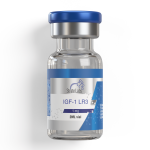Treating Infertility With Enclomiphene Citrate

Welcome to the topic Treating Infertility With Enclomiphene Citrate?
The Food and Drug Administration (FDA) has approved this oral fertility drug for treating infertility in women.
This drug stimulates ovulation and alters the body’s hormone balance.
The FDA approved Enclomiphene Citrate for use, but only in female patients. In some cases, doctors prescribe it off-label to treat male infertility. Gain a better understanding of the practice of using prescription drugs in ways not specifically recommended by the manufacturer.
Is there any evidence that enclomiphene citrate is a successful treatment for male infertility? Continue reading to find out more.
How does Enclomiphene Citrate work?
Enclomiphene Citrate prevents the hormone estrogen from having an effect on the pituitary gland by acting as an antagonist. When estrogen communicates with the pituitary gland, there is a reduction in the production of luteinizing hormone (LH) and follicle-stimulating hormone (FSH).
This results in a reduction in testosterone and, as a consequence, a reduction in the production of sperm. Enclomiphene citrate prevents estrogen from interacting with the pituitary gland, increasing levels of luteinizing hormone (LH), follicle-stimulating hormone (FSH), and testosterone.
The optimal dosage for males remains undetermined. There is a wide range of possible daily dosages, from 12.5 milligrams (mg) to 400 mg.
A new analysis suggests beginning treatment with a dosage of 25 milligrams (mg) three times per week and then gradually titrating, or adjusting, the dosage until it reaches 50 milligrams (mg) per day as required.
It is possible for a high dose of clomiphene citrate to have an adverse effect on the number of motile sperm and their overall health. Always with your healthcare professional to ensure that you take the correct dosage.
Common Enclomiphene Citrate Prescription Reasons
Off-label use of enclomiphene citrate is a common practice for treating male infertility, particularly in situations with low testosterone levels.
According to CDC, a Trusted Source, 35 percent of couples who have difficulty conceiving pinpoint both a male and a female issue as the cause of their inability to produce a child. Only the male partner contributes to infertility in 8% of all couples.
A wide variety of factors can cause male infertility.
The attending physician will perform a sperm test if they suspect male infertility. They will analyze a sample of the sperm to determine the count of sperm as well as the shape and motility of the sperm.

Side effects of this medication?
Researchers have conducted relatively few controlled studies on clomiphene citrate usage in males. However, some people may have the following negative effects as a result of the caused hormonal changes:
- tenderness of the pectoral muscle
- irritability
- acne
- a quickening of the progression of prostate cancer (if cancer is already present)
- rarely, clomiphene citrate causes vision changes due to an enlarged pituitary gland.
After discontinuing treatment with the medicine, the adverse effects caused by clomiphene citrate are often reversible. If you experience any of the adverse effects described in the preceding paragraph while taking clomiphene citrate, you should immediately stop taking the medication and seek medical attention.
Efficacy for fertility
In a recent study that looked at the use of clomiphene citrate to treat male infertility, the researchers found conflicting findings regarding the drug’s efficacy or effectiveness.
Some studies on low sperm count or unexplained infertility showed moderate improvement in sperm count with treatment.
Other studies found no difference between treated and untreated or placebo groups. When looking at the results of pregnancy, this proved to be very accurate.
A recent study compared the effectiveness of a placebo pill to a combination of the fertility drugs clomiphene citrate and vitamin E, which resulted in a greater number of successful pregnancies among infertile men.
However, the study did not compare the clomiphene citrate and vitamin E group to the clomiphene citrate alone group. As a consequence, the researchers were unable to determine whether or not the addition of vitamin E to clomiphene citrate increases the effectiveness of the treatment in achieving a pregnancy.
Findings of the Enclomiphene Citrate Study
In a study, researchers divided the men diagnosed with infertility into three groups:
- Group A: Participants taking vitamin E only
- Group B: Participants taking Enclomiphene Citrate only
- Group C: Participants taking Enclomiphene Citrate and vitamin E
The results revealed an increase in sperm levels across all three groups, with the most significant growth observed in Group C. The growth in Group A was the second greatest of all the groups. This was a very small-scale investigation.
A recent study found that men with unexplained male factor infertility and normal or below-average sperm motility and shape benefit most from clomiphene citrate therapy.
Researchers expect these men to achieve sperm counts suitable for artificial insemination using enclomiphene citrate. This is because enclomiphene citrate is effective in increasing sperm counts.
Other treatments for male infertility
Medications
There are further medications that your doctor can prescribe for hormone imbalance, and they are available. These medications have the additional effect of raising testosterone levels while simultaneously lowering estrogen levels in the body.
- Doctors administer human chorionic gonadotropin, or hCG, via injection. It has the ability to promote testicular production of testosterone.
- Scientists created Anastrozole, also known as Arimidex, specifically to treat breast cancer.
Surgery
If a blockage prevents sperm transport, the doctor may recommend surgery to address the issue. Surgery can also correct varicoceles.
In vitro fertilization
The egg and the embryo created through in vitro fertilization (IVF) are both handled outside of the body during the process of in vitro fertilization (IVF). Through the use of a needle, eggs are extracted from the mother’s ovaries. After that, the eggs are brought back to the laboratory, where they are mixed with sperm. After this process, the embryo that was created is placed back into the body of the mother.
In cases of male infertility, a particular method of in vitro fertilization (IVF) known as intracytoplasmic sperm injection (ICSI) might be utilized. In intracytoplasmic sperm injection (ICSI), a single sperm is injected into an egg.
Have any questions regarding the topic Treating Infertility With Enclomiphene Citrate? Feel free to comment below.
Also Read: Top 10 Things To Know About Melanotan 2








